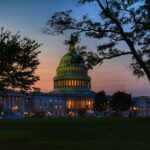The Domestic Cost of the War on Terror
After the attacks on September 11th, 2001, both the American public and government officials were united in fear. Both had been targeted and quickly had to grapple with a new, unexpected feeling of vulnerability in daily life.
As a result, a supermajority of politicians were willing to go to great lengths — militarily, financially, and morally — to combat the threat of foreign terrorism.
The national security apparatus was revamped and unleashed. Carrying out a campaign for revenge against those who committed the attacks, as well as anyone who had worked with them or even resembled them.
Two significant and unfortunate developments then occurred. Through legislation like the Patriot Act, restrictions on what national security apparatus could legally do were rolled back. All in the name of taking the gloves off to confront this evil and dangerous threat of terrorism.
At the same time, those in high offices began conflating their own interests with the need for national security. This ultimately culminated in the 2003 invasion of Iraq, a country that played no part in 9/11 even though politicians tried to convince us otherwise.
Among the most fundamental motivations of political officials and government, overall, is self-preservation.
And any government founded through revolution has an inherent problem. Once formed, the very means used to establish the government become its biggest threat.
Here in the U.S., we are taught from a young age that our Founding Fathers insurrections are to be celebrated but never emulated.
While it’s clearly a contradiction, this sentiment is necessary for the legitimacy and continuity of our government.
However, the contradiction is not lost on everyone; the people of the United States have a long history of resistance to their government.
But, thanks in large part to post 9/11 policy, our government now has the means to effectively challenge any perceived threat to its legitimacy, real or imagined.
Christopher Coyne and Abigail Hall’s brilliant 2020 book, Tyranny Comes Home: The Domestic Fate of U.S. Militarism, details what the authors call the boomerang effect.
Decades of foreign intervention have resulted in a wealth of knowledge about how to effectively monitor, manipulate, bribe, trap, and blackmail foreign actors. And further, on how to effectively use violence should those other measures fail.
The boomerang effect is the name given to the phenomena where the methods and equipment initially designed for use in foreign intervention eventually come home.
This can be seen in the 1033 program, which has thus far transferred $7.4 billion in military equipment to domestic law enforcement.
And the 2013 Snowden leaks gave us insight into how intelligence agencies that, on paper, are only meant to spy on foreign individuals are also monitoring American citizens.
All of this would be less concerning if the government had done an excellent job keeping the War on Terror focused on those who actively wanted to hurt Americans. But that’s not what happened.
Instead, many were targeted who could never seriously be considered terrorists. Millions of innocent people’s lives were turned upside-down just by being in proximity to perceived threats.
Now the events at the Capitol on January 6th have led many to call for a crackdown on domestic terrorism.
In response to these demands, the Biden administration released a 30-page report detailing their strategy for countering domestic terrorism. The document is a masterclass in the art of threat conflation.
When defining the threat landscape, the report begins with references to acts that most people will appropriately find horrific. Such as the racial mass killings that many would think of when they hear the words ‘domestic terrorism.’
But then the definition continues on to include anti-government extremists and those who resist perceived government overreach. Already, there’s a conflation of white supremacist militias and other citizens opposing their government.
The report then goes on to highlight the danger posed by unregulated social media and end-to-end encryption. By linking digital privacy and unmonitored communication with domestic terrorism, the administration sets itself up to confront much more than violent extremism.
As citizens, we must watch the government vigilantly. And push back when they threaten the civil liberties of those of us who are peaceful. Just because a domestic war on terror is a logical next step does not make it destiny.




